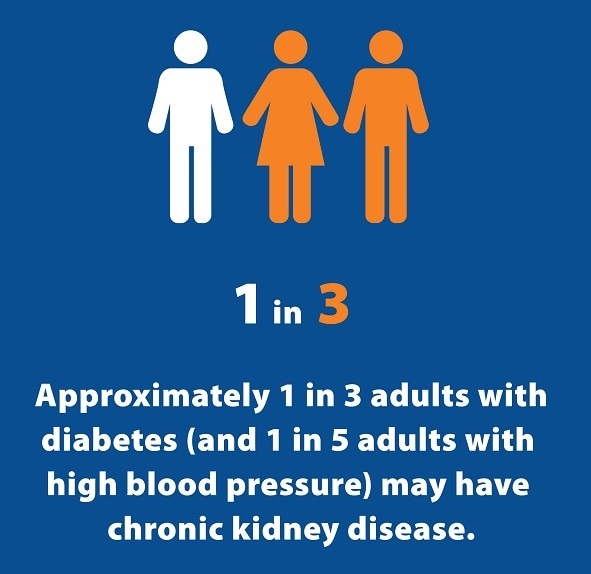Live Well With Chronic Kidney Disease

Taking an active role to manage your CKD will help you feel better and improve your overall well-being.
Taking an active role in managing your chronic kidney disease (CKD) can improve your overall well-being. Learn what you can do to feel your best.
Kidneys that work properly are critical to keeping you healthy. If you have CKD, your kidneys can’t filter blood as well as they should, and this can lead to other health problems, such as heart disease and stroke.
While it’s not possible to reverse kidney damage, you can take steps to slow it down. Taking prescribed medicine, being physically active, and eating well will help. You’ll also feel better and improve your overall well-being.
Look After Yourself
Taking care of your health will keep you feeling your best. Here are some tips that can help you manage your CKD and stay healthy.
Take your medicine.
Some medicines are designed to prevent serious problems in the future. It’s very important that you take any prescribed medicine, even if you feel well.
Check with your care team if you plan to take any painkillers or nutritional supplements. These can sometimes affect your kidneys or interfere with your medicine. If you have concerns or side effects with medicine you’re taking, talk to your care team.
Get physically active.
Physical activity is good for anyone with kidney disease, whether you have mild, moderate, or severe CKD. It can boost your energy, help you sleep, strengthen your bones, and help prevent depression. It may also reduce your risk of problems such as heart disease.
If you have mild to moderate CKD, you should be able to do physical activity as often as someone the same age as you with healthy kidneys. If you have later-stage (or severe) CKD, you may become tired more quickly. Speak with your doctor about which physical activity is right for you.
A few other things you can do to help manage your CKD:
- Quit smoking or don’t start. Smoking can make kidney disease worse and interfere with medicine that lowers blood pressure.
- Limit how much alcohol you drink. Alcohol can increase your risk of high blood pressure.
- Keep your blood pressure below 140/90 mm Hg (or the target set by your doctor).
- If you have diabetes, stay in your target blood sugar range as much as possible.
- During flu season, get your flu shot.
Eat Well With CKD
A healthy, balanced diet can help improve your general health and reduce your risk of developing further problems.
While you should limit salt, your food doesn’t have to be bland! Get creative with herbs, spices, mustard, and flavored vinegars in your favorite recipes. Cooking food at home instead of eating out at restaurants will also help reduce your salt intake.
If you have diabetes and CKD, finding the best foods to eat can be challenging. Don’t be overwhelmed with a list of “can’t.” There are still plenty of foods you can enjoy. Some foods that work for both diabetes and CKD include:
- Fruits: berries, grapes, cherries, apples, plums
- Veggies: cauliflower, onions, eggplant, turnips
- Proteins: lean meats (poultry, fish), eggs, unsalted seafood
- Carbs: white bread, bagels, sandwich buns, unsalted crackers, pasta
- Drinks: water, clear diet sodas, unsweetened tea
Learn more about foods that work with diabetes and CKD and foods that you should limit or avoid.
Need a little extra help? A registered dietitian who specializes in diabetes and CKD can give you suggestions and help you find tasty recipes that work for both diets. Your dietitian can also give you the support and confidence you need to manage your meals and be your healthiest.
